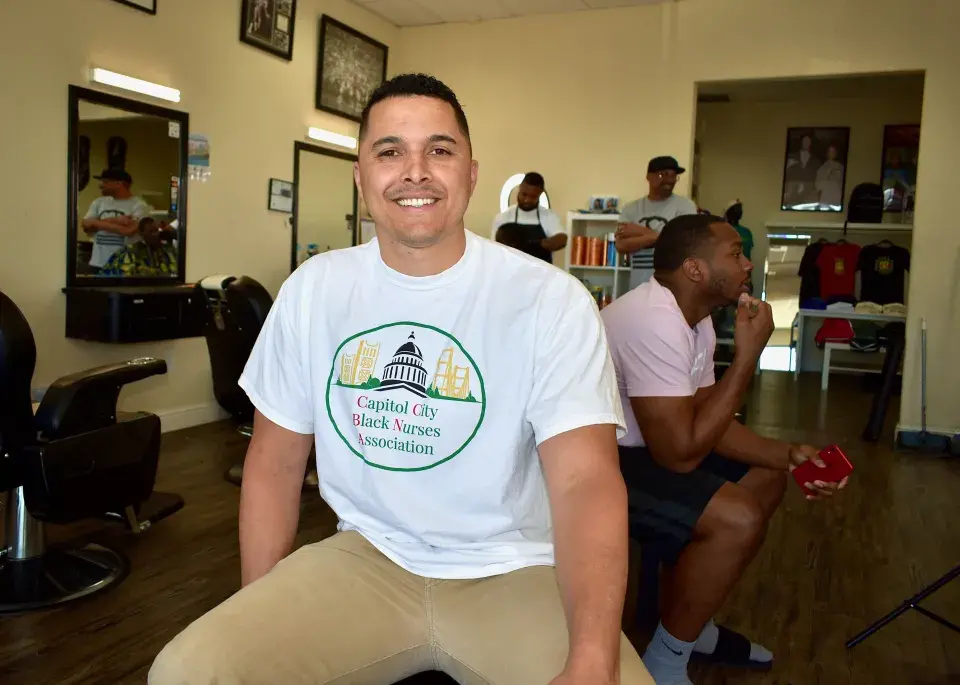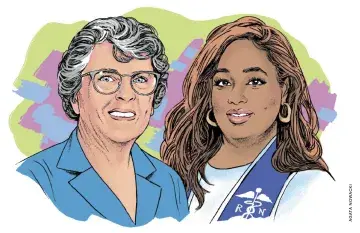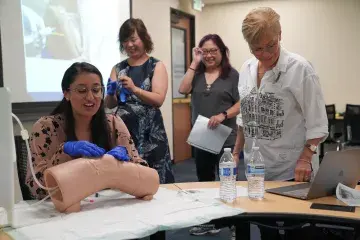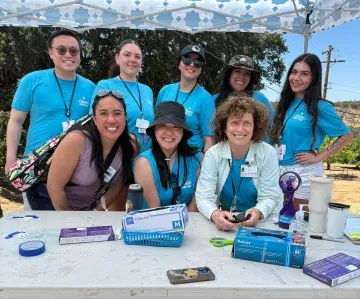Nursing Alum Makes "Sac Biz Journal" 40 Under 40 List

Carter Todd, ABSN ’15, has been recognized by the Sacramento Business Journal as a 40 Under 40 in healthcare for his advocacy work recruiting Black nurses to the profession as well as his work educating and expanding healthcare access to underserved communities.
In 2018, Carter founded the Capitol City Black Nurses Association (CCBNA) to improve prospects for nurses, nursing students, and future generations of Black nurses through scholarships and opportunities to collaborate and access resources. Under Carter’s leadership as president, CCBNA has grown in size and prestige, winning several national awards and recently hosting the first statewide conference of Black nurses in 50 years. CCBNA’s scholarship program, which was inspired by a scholarship Carter received at SMU, has provided nearly $10,000 to nursing students and a special award for high-level research related to Black nurses or the Black community.
As a hospital nurse, Carter has often been the only Black or Black male nurse in a room of dozens of nurses. Yet, he knew from studies that more diverse workplaces mean more diverse opinions when it comes to finding solutions to problems. He also knew from studies that diversity in healthcare providers means better care for patients. Rather than standby, Carter wanted to make a difference and decided to found CCBNA.
“This idea carries me through my work in the community”
CCBNA’s successful Barbershop Healthcare Talks initiative in June grew out of Carter’s master’s thesis and got to the core of the nonprofit’s two-fold mission: to improve health outcomes in communities where health disparities persist, and to grow the number of Black nurses in the workforce. Audience members from six states attended a daylong, live-streamed event held at Sacramento’s Guild Theater and four barbershops in Sacramento and New York. Attendees heard Black doctors, nurses, social workers, and community organizers talk about mental health, COVID-19, preventative health, fatherhood, how to access healthcare as a patient, and how to become healthcare providers themselves.
Research shows that patients have better health outcomes as a result of more diverse representation among healthcare workers, explains Carter, who now works as an assistant nurse manager at Kaiser Permanente Roseville Medical Center. “It’s one thing to know someone’s background, but it’s another to have healthcare providers who come from the same neighborhoods as their patients, who speak their languages. It means we can treat patients more holistically, and they can receive better healthcare.”
“It’s important to get the barbers and barbershops involved in these conversations because that’s where these conversations happen on a daily basis in the community,” says Rashid Sidqe, who attended the event and is CEO and president of Lift Up Love Always, a nonprofit committed to serving overlooked and underserved communities in Sacramento.
“The Black doctors and nurses answered the audience’s questions clearly in layman's terms instead of medical terms,” says Rashid. “Instead of feeling nervous in the doctor’s office, they were comfortable talking to the Black healthcare providers, and it enriched the conversation. And children asked questions about how these Black doctors and nurses started their careers.”
“Samuel Merritt taught me to see and assess our patients as a whole and for more than just their current diagnosis. This idea carries me through my work in the community and in the hospital,” says Carter, who enrolled in SMU’s Accelerated Bachelor of Science in Nursing program because it allowed him to graduate in one year and SMU’s Sacramento campus made attending classes convenient.
“At Samuel Merritt, I felt very supported and valued,” remembers Carter, “and I don’t take that for granted. I want other Black students and nurses to feel as supported as I did as they earn their degrees and progress in their careers. I started CCBNA so none of them would fall through the cracks.”


